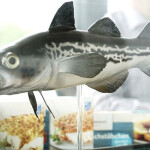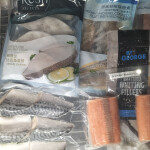An association of salmon farmers in Chile’s southern region of Magallanes has alleged impropriety against Philadelphia, Pennsylvania, U.S.A.-based nonprofit The Pew Charitable Trusts, claiming the nonprofit’s efforts to help formulate a conservation management plan within southern Chile’s Kawésqar National Reserve represent a conflict of interest.
The salmon-farming association has accused Pew of providing financing that may have unduly influenced Chile’s national forest service, Conaf, when it came to defining forestry plans in the region.
To address this issue, the association has filed a complaint to Chile’s comptroller to “investigate and determine the existence of a possible conflict of interest and/or possible infractions of the principles of administrative probity, impartiality, and service” of Conaf.
What the complaint specifically references is framework agreements signed from 2018 to 2020 between Pew, Conaf, and the Universidad Austral de Chile (UACH) to define the management of protected areas in Chilean Patagonia/. Within the agreements, Pew supplied more than CLP 1.9 billion (USD 1.9 million, EUR 1.8 million) in funding to the UACH, according to Carlos Odebret, the president of the Association of Magallanes Salmon Farmers.
The funding “may have been transferred to Conaf in an amount that we still do not know and we hope will be clarified in the investigation,” Odebret said in a release.
“These monies were used to hire personnel to work on the development of the management plan for the Kawésqar National Reserve and to carry out the technical studies that support it," he said. "In other words, Pew, an NGO that has expressed interest in preventing the development of salmon farming, financed Conaf through a network of agreements for the development of a public policy with significant effects on third parties.”
The association went on to explain in the complaint that a contractual triangle could be drawn between Conaf, Pew, and the UACH that aimed to influence the management of protected areas in Chilean Patagonia.
“Each party is linked to the remaining two in agreements with the same objectives and similar wording. Such similarity is evident when reviewing the lines of work that the Conaf-Pew and Conaf-UACH agreements incorporate,” the complaint said. “The conflict is evident and departs from impartiality not only in the case of the professionals who were directly remunerated by Pew but also in the public function carried out by Conaf. Pew illegitimately influenced Conaf, affecting its ability to make impartial and objective decisions, which impacts the integrity of the public decision-making process and the equity with which the State must act toward citizens.”
When contacted by SeafoodSource regarding the claim, The Pew Charitable Trusts said that the complaint was …








